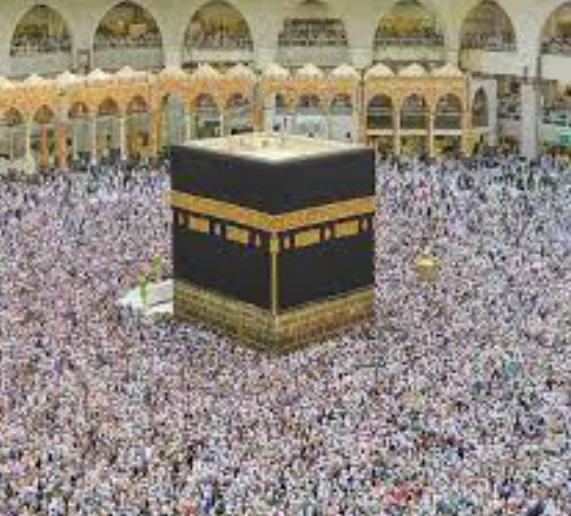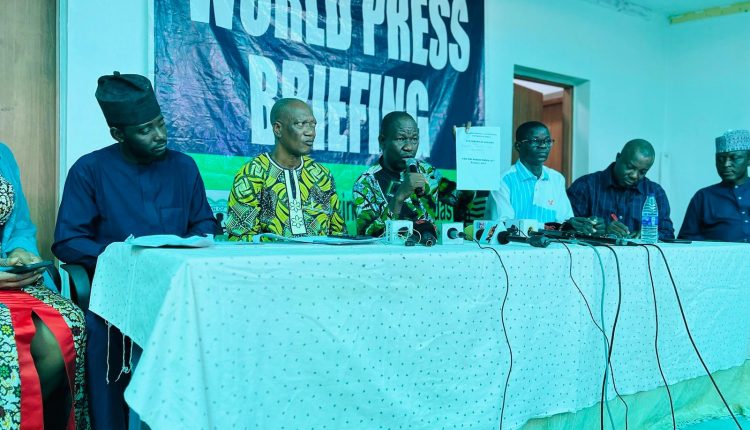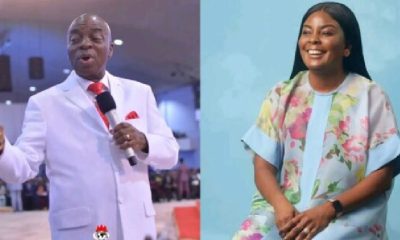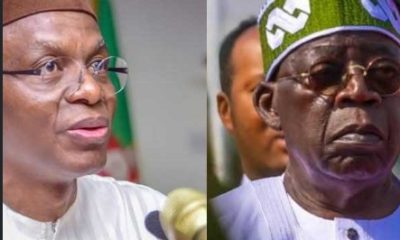News
Latest on 2024 Hajj Airlift and the National Medical Team

By Kayode Sanni-Arewa
By 15th of May 2024, the outcome of preparations for the year’s Hajj season would manifest with the planned take-off of 428 passengers on FlyNas airline to Saudi Arabia.
The inaugural flight is scheduled to take-off with Kebbi state pilgrims from the Sir Ahmadu Bello International Airport (SABIA) in Birnin Kebbi, the state capital.
To witness the occasion are diplomats, members of the Hajj industry with the Vice President, His Excellency Sen. Kashim Shettima as Special Guest of Honour. An advance team of officials comprising medical personnel from the National Medical Team (NMT), media staff, accommodation officials, few feeding committee members, select members of the Central Security Committee members as well as the National Reception Team departed Nigeria on Sunday 12th to receive the pilgrims. The onward airlift to Saudi Arabia will last until 10th day of June or hopefully earlier. Pilgrims will travel in groups of 45 according to Saudi Arabia’s guidelines; missing out from the group could come with consequences as stated by the host country.
Two other flights are scheduled to take-off on same day of the inaugural flight with pilgrims of Nasarawa and Federal Capital Territory (FCT) from the Abuja International Airport.
Subsequently, two flights would take-off each day in the days following the inaugural flight to gradually increase to five flights daily. 15 Airports have been designated for the 2024 Hajj exercise. About 65,047 pilgrims from both public and private sectors are expected to participate in the 2024 Hajj.
While all Hajj operational committees are critical to the success of every Hajj, the NMT is one of the most sensitive after the Aviation Sector. Composition of the team attracts interest of the pilgrims as well as prospective personnel. Hence, on the 12th of February 2024 The National Hajj Commission of Nigeria (NAHCON) launched the National Medical Team (NMT) portal inviting interested candidates willing to volunteer their medical services for the 2024 Hajj pilgrims to register on the portal within two weeks. By the end of the registration deadline, 19,832 had applied. Out of this total only 7,532 scaled the first screening test of submitting duly completed e-forms.
It would be recalled that at the time of inviting interested candidates, the following criteria were clearly spelt out as yardsticks for qualification into the medical team. That:
i. Doctors and Pharmacists should be between the ages of 28 to 60 while nurses and Environmental / Community Health Workers should be between 22 to 60
ii. Applicants must not have participated in the last three NMT operations vis-à-vis, 2019, 2022 and 2023.
The only exceptions to this category are principal officers selected to lead the team from the onset as well as few regular members from the past teams who were recognized for excellence. Their selection is automatic.
iii. Must be in active service at the time of application
iv. Must be ready to work for 28 days and stay in KSA for 45 days.
The Medical Team, led by Dr Abubakar Adamu Ismaila from the Federal Min of Health and Social Welfare (FMH&SW) as Head of Medical Mission, along side selected staff of NAHCON in the NMT Committee conducted the assessment of applications. Other Principal Officers entrusted with the task are Pharmacist Ibrahim Babashehu (Registrar, Pharmacists Council of Nigeria) as Head of Pharmacists; Dr Saidu Ahmed Dumbulwa, Institutional Representative of FMOH & SW on NAHCON’s 5th Board, Matron Zainab Garba Mamu (Retired Director FMOH& SW) holds the position of Head of Nurses and Dr Zaiyad Garba Habib (University of Abuja Teaching Hospital) is Head of Doctors.
At the end of the exercise, out of the 7532 correctly submitted applications, 1295 applicants were dropped for selecting payment option for their medical services instead of volunteerism as requested, while another five where similarly dropped for failure to indicate their choice of whether volunteerism or for a fee. Another 1,307 applicants were disqualified after indicating that they had participated in the medical team within the last three Hajj seasons. On the other hand, NAHCON’s data revealed another 175 applicants who either concealed the fact of their participation in the previous years or gave false information on that claim. A breakdown showed 37 of them participated in the 2019 NMT, 60
Those who participated in the 2022 medical team and 78 were members from 2023 National Medical Team.
They were eliminated. Another 135 were also eliminated based on age while 43 were rejected for submitting multiple applications. In total, only 4861 eventually scaled the second round of screening.
Interestingly, out of these 4861 successful candidates, only 140 would be shortlisted according to official medical quota allocated to the country by Saudi Arabia. In the past, it used to be one medical personnel to 1000 pilgrims.Nevertheless, because the Commission understands the peculiarity of Nigerian pilgrims for health care demand, NAHCON supports additional medical personnel among its overall quota to supplement Saudi’s formal allocation. Despite this gesture, overwhelming medical attention persists among Nigerian pilgrims while in the Kingdom.
The reader is invited to kindly take note that the overall NMT is constituted of 60% workforce selected and presented by the various states’ pilgrims’ welfare boards from the state level.NAHCON contributes only 40% of the medical staff.
Though of recent, the reverse is almost the case due to financial weaknesses of some state governments that rendered them incapable of sponsoring medical staff in the NMT. The Commission would not relent in augmenting critical services for the welfare of Nigerian pilgrims thus bears the brunt.
To meet its own 40% medical staff support, NAHCON conducts random balloting to select members of the NMT.
Thus, by the end of the balloting and collation, out of the 140 that were successfully shortlisted, three more were dropped for failing pregnancy tests, they have since been replaced.Hence, notification has been sent to successful candidates to serve as members of the 2024 Hajj National Medical Team.The team will be working under three major clinics in Makkah and one in Madinah which is located on Quran street. In Makkah, the Main Office is in Masfala Kudei where most pilgrims are accommodated. The two other major clinics are in Al-Tayseer and Masfala Shari Hijr. Medical
Personnel are not posted to individual state accommodations because the Saudi authority does not recognize state boards running individual clinics. NAHCON thus establishes few outpost stations to decongest the three main clinics. Erecting the outpost stations depends on certain factors that can only be determined while in the Kingdom of Saudi Arabia. About 50% of the medical personnel will be provided with portable first aid kits to move around with for timely medical intervention.
During the five days of Hajj rites, NAHCON would run one clinic in each of the 15 pilgrims’ field offices in Muna. In addition, the Commission will run mobile clinics in Masha’ir while ambulances belonging to state welfare boards shall be deployed to the sites as back-up.
The Commission’s deep desire to guarantee welfare of pilgrims gave impetus to the exhaustive efforts put in place for success of the Hajj season.
Usara is Assistant Director, Public Affairs and writes from NAHCON
News
SEYI Tinubu Speaks On Alleged Abduction, Brutalization Of NANS President Atiku Abubakar Isah

A group known as “Friends of Seyi Tinubu (FOST) has reacted to the alleged abduction and brutalization of Abubakar Atiku Isah in Abuja on Tuesday by Seyi Tinubu.
The group said never at any point has Seyi Tinubu ordered thugs to abduct and brutalise one Comrade Atiku Abubakar Isah, who claims to be President of the National Association of Nigerian Students (NANS).
The group described allegations against Seyi Tinubu as reckless, saying it’s an attempt to tarnish the good reputation of the President’s son.
A statement by the President of the group, Com. Adejorin Tai Manuel, condemned the publication dated April 16, 2025, alleging Seyi Tinubu was behind the attack on Atiku.
The statement reads:
“Mr. Seyi Tinubu is a young, focused, and accomplished individual who has no time, business, or interest in the politics of NANS, let alone stooping so low as to orchestrate violence against someone who is clearly unknown to him.
“The claim that Seyi Tinubu even recognises or acknowledges Comrade Atiku as a threat or enemy is laughable and clearly fabricated. Seyi Tinubu is not a member of NANS, not a patron, nor is he involved in any student political process. He remains committed to his personal and national development engagements, which are far beyond the narrow scope of campus politics.
“It is important to clarify that Comrade Atiku Abubakar Isah does not represent Nigerian students. His claims of being elected at the so-called “125th NANS Convention” are factually incorrect and devoid of logic. NANS, which was founded in 1980, has not held up to 125 conventions in its history. Atiku did not attend the last constitutionally recognized NANS convention, nor did he participate in any legitimate electoral process.
“There is no record of any election conducted that produced him. He has no known executive council, no vice president, no secretary-general, no financial secretary, or any EXCO member to support his claims. He merely woke up, declared himself president, and began parading the title across media platforms without mandate or legitimacy.
“One wonders who Atiku represents, where his mandate originated from, and how the medium failed to ask the most basic questions about his legitimacy before giving him a platform to spread lies.
“The so-called “election” that produced him remains invisible, with no evidence of senator participation or institutional backing. He has been rejected by the mainstream NANS community, and the public deserves to know that the association operates with structure and order not propaganda.
“Dragging the name of Seyi Tinubu into this charade is a calculated smear campaign designed to attract public sympathy and give credibility to a failed quest for recognition.
“But Nigerians are wiser than that. Seyi Tinubu has no business with impostors. His focus remains on uplifting youth, driving entrepreneurship, and contributing meaningfully to the nation’s development—not getting entangled in student leadership dramas. It is therefore absurd and insulting that a man of his pedigree would be linked to such crude behavior.”
News
NUJ-FCT Unmasks Financial Scandal Under Ex-Leadership, Issues Disclaimer

…handover Ogbeche, Osadebamwen, others to EFCC for probe
Speaking during a media interaction in Abuja, the Council under the leadership of Comrade Grace Ike shared details of the inquiry conducted by a committee established by the NUJ Congress. The initiative is part of ongoing efforts to enhance organisational accountability and strengthen internal governance systems.
The five-man panel, chaired by veteran journalist, Comrade Tony Akowe, included Comrade Ndubueze Chidoka (Secretary), Comrade Akin Orimolade, Comrade Princess Ekwi Ajide, and Comrade Imam Umar.
The committee’s scope covered activities from December 2018 to October 2021, encompassing the periods of past administrations led by Emmanuel Ogbeche and Patrick Osadebamwen.
According to the committee’s documentation, critical gaps were observed in record-keeping and transitional documentation. In addition, there was limited engagement from some former officeholders during the review process. The only available financial review for the period in question reportedly presented inconsistencies requiring further attention.
The committee noted that its work was hampered by a lack of cooperation from key figures of the past administration. According to Mr Akowe, no formal handover was done, and only a limited set of documents including one audited financial report and some rental receipts was made available.
Efforts to retrieve further documentation from the former chairman, Mr Patrick Osadebamwen, proved unsuccessful. He reportedly claimed to have submitted relevant documents to the NUJ National Secretariat, which has since denied receiving any such records.
The probe uncovered several questionable financial entries and unverified expenditures:
• A total of ₦33 million was declared as rental income between 2018 and 2021, but there was no breakdown showing the names of tenants or corresponding rent periods.
• The administration claimed to have received ₦7.2 million in donations yet failed to provide details or evidence of the sources.
• ₦5.28 million was spent on salaries for four to five staff, even though no single staff member earned more than ₦25,000 monthly.
• Over ₦1.7 million was reportedly spent on electricity, ₦285,000 on DStv/GOtv subscriptions, ₦78,000 on “public relations and entertainment”, and ₦1 million on transport and accommodation—all lacking adequate justification.
• A controversial line item showed ₦14 million received as rent “in advance”, with no associated documentation to validate it.
The committee’s report concluded that there was no transparency in the management of the union’s finances during the period under review.
Following the probe report, the NUJ-FCT Congress, in its sitting on 12 April 2025, adopted a series of resolutions aimed at protecting the Union’s integrity and financial stability.
The Council issued a public disclaimer against the following individuals, who have been warned to cease parading themselves as representatives of the NUJ-FCT Council:
• Mr Emmanuel Ogbeche, currently Special Adviser to the Governor of Cross River State.
• Mr Patrick Osadebamwen, immediate past Chairman and journalist with the Nigerian Tribune.
• Mr Ochiaka Ugwu, former Secretary of the Council and staff of People’s Daily.
In addition, Mrs Gloria Essien has been cautioned against representing the Council at the Nigeria Labour Congress (NLC), as she no longer holds any official position within the NUJ-FCT.
The union also called on UBA Bank to freeze the NUJ-FCT Council’s accounts still under the control of former signatories (Account Nos: 1022765326, 1014057659, and Dollar Account: 3002941904), pending a full transition to the current leadership.
Furthermore, the NUJ-FCT will:
• Publish a formal disclaimer in national dailies.
• Notify the employers of the former officials about the resolutions.
• Alert government institutions, corporate bodies, and the general public not to engage with the aforementioned individuals on behalf of the NUJ-FCT Council.
The Council’s Secretary, Mr Jide Oyekunle, who anchored the press briefing, reiterated that the probe’s findings and the resolutions reflect the collective will of the NUJ-FCT Congress and the determination to protect members’ interests.
News
Finally , Lagos Court frees Quadri, young Nigerian who stood before Obi’s convoy in viral photo

The Apapa Magistrate Court, Court 9 sitting at Orege, Ajegunle – Sikiru Adagun Courthouse, has discharged and acquitted Alabi Quadri, the young Nigerian who became a national symbol of courage during the 2023 general elections, for standing boldly in front of the convoy of then-Labour Party presidential candidate Peter Obi.
He was discharged and acquitted of conspiracy to commit felony and armed robbery.
The court held that he has no case to answer.
Quadri was brought to court on Thursday, April 17, 2025, after spending months in Kirikiri Prison, Lagos.
The Nigerian Correctional Service produced Quadri at the Apapa Magistrate Court, located at Orege, Ajegunle—Sikiru Adagun Courthouse (Court No. 9).
Quadri’s case was initially slated for a hearing on April 28, 2025.
However, human rights lawyer and activist Inibehe Effiong had revealed that both he and the Director of Public Prosecutions (DPP) requested that the date be moved forward, and the court granted the application.
Quadri gained widespread attention after a viral video showed him, a teenage boy at the time, fearlessly standing before Peter Obi’s campaign convoy—a moment many Nigerians interpreted as a symbol of youthful defiance and hope during a tense election period.
The media reported that Effiong revealed that Alabi’s recent painful descent into the Nigerian prison system was not due to any major crime but rather a result of prolonged malice and resentment harboured by some self-acclaimed ‘area boys’ (thugs) in his neighbourhood.
According to the lawyer, these individuals felt entitled to a portion of the unexpected attention and goodwill, including financial support, that Alabi received following his moment in the spotlight during the 2023 presidential campaign.
Effiong, who recently visited the Apapa Magisterial Court in Lagos alongside Alabi’s mother and legal colleagues, stated that Alabi’s journey to Kirikiri prison was not only heartbreaking but appeared to be the outcome of a vendetta fuelled by local ‘area boys’ who felt entitled to the financial support Alabi received after his viral moment.
Effiong revealed that Alabi was abducted in January near his home while returning from work by the ‘area boys’ who had been threatening him.
They allegedly took him to Amukoko Police Station (popularly known as Pako Police Station) and accused him of being involved in street fights.
However, Alabi was then arraigned before a Magistrate Court along with four other individuals, said to be complete strangers to him, on allegations of conspiracy to commit armed robbery with cutlasses.
According to the charge sheet, the alleged victims were robbed of N579,000, comprising cash and four mobile phones.
Effiong also emphasised that despite being a minor, Alabi had been detained with adults at Kirikiri since January, pending legal advice from the Lagos State Directorate of Public Prosecutions (DPP).
-

 News5 hours ago
News5 hours agoBREAKING: Unknown gunmen reportedly storm Senator Natasha’s family residence
-

 News14 hours ago
News14 hours ago“How my father escaped assassination” – Bishop Oyedepo’s daughter
-

 News14 hours ago
News14 hours agoFG expresses sympathy for CBEX victims, urges a united effort to combat Ponzi schemes
-

 News8 hours ago
News8 hours agoSnub story on removal of Rivers Sole Administrator, it’s FAKE-Chief Registrar
-

 News7 hours ago
News7 hours agoSAD! Again, Alleged Herdsmen Attack Three Benue Communities
-

 News20 hours ago
News20 hours agoEl-Rufai labels Tinubu’s government ‘worst in Nigeria’s history’
-

 News14 hours ago
News14 hours agoWoman tragically lost her life after attempting to flee through glass door during alleged incident of domestic violence
-

 Politics7 hours ago
Politics7 hours agoPDP govs are jokers, can’t stop coalition train, Atiku boasts






